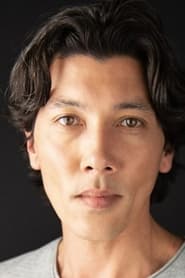Dark Samurai
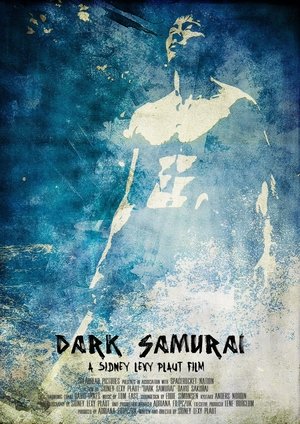
Dark Samurai
HomePage
Overview
The film is inspired by Miyamoto Musashi who was one of the most famous Japanese ronin and warrior philosophers. This very alternate and visual interpretation of the fate of Miyamoto is brought into a mixture of contemporary Yakuza underworld and a hypnotic Samurai after-life. We flow seamlessly between through life, death, rebirth and the afterlife and challenge our traditional definition of the past, present and future. The film explores the agonizing and painful processes that go through the shattered mind of Miyamoto, as he desperately tries to hold on to the only thing he has left - The rapidly fading memories of his undying love for a woman named, Otsu. A love that for a Yakuza-Samurai is strictly forbidden and which will prove to have catastrophic consequences.
Release Date
2014-11-21
Average
0
Rating:
0.0 startsTagline
Genres
Languages:
日本語Keywords
Similar Movies
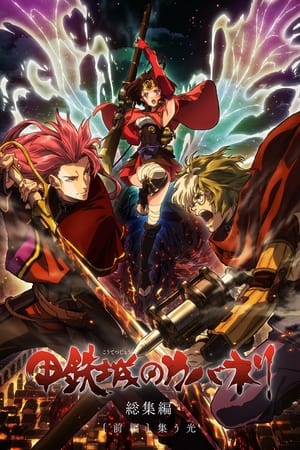 7.8
7.8Kabaneri of the Iron Fortress: Light That Gathers(ja)
In the midst of an industrial revolution, the people of Hinomoto fight hordes of undead creatures, known as Kabane, using powerful armored trains. (Compilation film of the first half of the original TV series.)
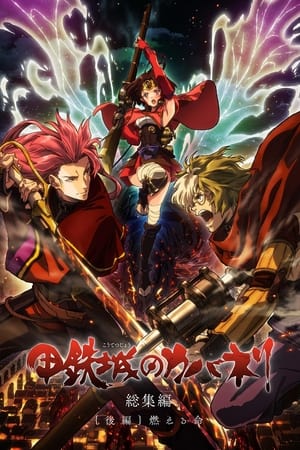 7.5
7.5Kabaneri of the Iron Fortress: Life That Burns(ja)
In the midst of an industrial revolution, the people of Hinomoto fight hordes of undead creatures, known as Kabane, using powerful armored trains. (Compilation film of the second half of the original TV series.)
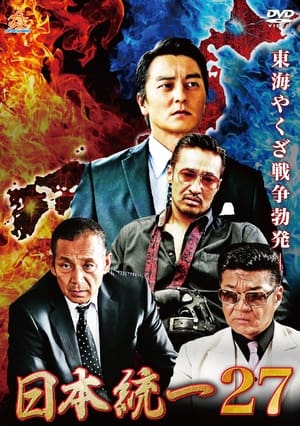 5.0
5.0Unification of Japan 27(ja)
Tension continues at the Kyowakai headquarters. Kawatani, Himuro, and Tamura are unable to hide their anger and confusion at the events that occur one after another, such as Shibuya's death and a series of absentees from meetings. Meanwhile, in Kobe, a new anti-chivalry group is starting to move. However, Baba, who plays the role of chairman and does not know about Shibuya's death, postpones the official raising of the company.
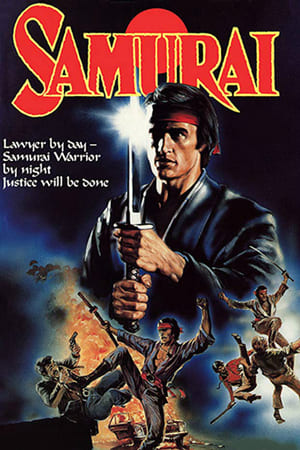 0.0
0.0Samurai(en)
Lee Cantrell, a young San Francisco attorney by day, at night becomes a samurai warrior, and battles a crazed multi-millionaire who is planning to destroy the city with an earthquake machine.
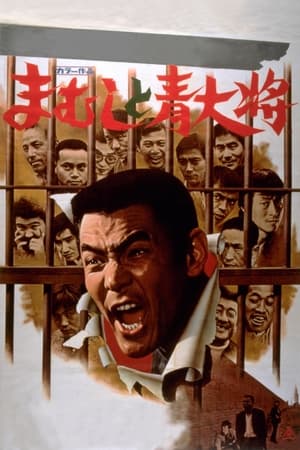 0.0
0.0The Viper Brothers and the Young General(ja)
The last in the series. Sugawara runs into two mahjong cheaters (Ichiro Araki and Mako Midori + sidekick Takuzo Kawatani) whom he takes for friends in need as his naivety prevents him from seeing their true nature.
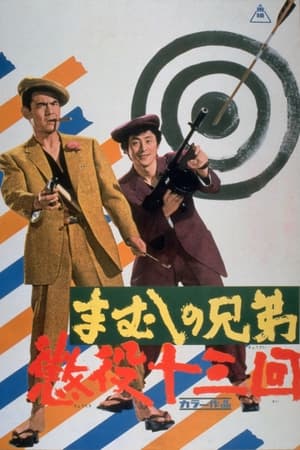 0.0
0.0The Viper Brothers: Prison Gang 13(ja)
Part 3 in a long running (8+1 films) action/comedy/melodrama series about a pair of short tempered, amoral, but not evil chinpira (Bunta Sugawara and Tamio Kawachi) thinking too big of themselves.
 6.3
6.3Taxi 2(fr)
A cabdriver and a cop race to Paris to rescue a love interest and the Japanese minister of defense from kidnappers.
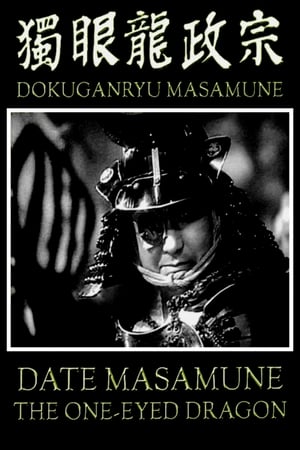 5.7
5.7Date Masamune the One-Eyed Dragon(ja)
The life, adventures and exploits of warlord Date Masamune the One-eyed Dragon: his early youth as an aggressive warrior, the battles he won until subduing almost all his enemies, the lonely comprehension of knowing that he actually can not take over the whole country because he was born too late.
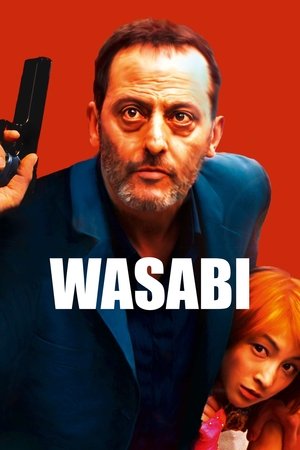 6.6
6.6Wasabi(fr)
Hubert is a French policeman with very sharp methods. After being forced to take 2 months off by his boss, who doesn't share his view on working methods, he goes back to Japan, where he used to work 19 years ago, to settle the probate of his girlfriend who left him shortly after marriage without a trace.
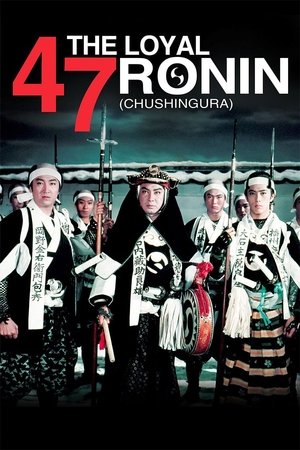 6.0
6.0The Loyal 47 Ronin(ja)
Japan, 1701. A group of samurai become rônin after their lord is forced to commit seppuku for assaulting a court official, who will become the target of a merciless revenge.
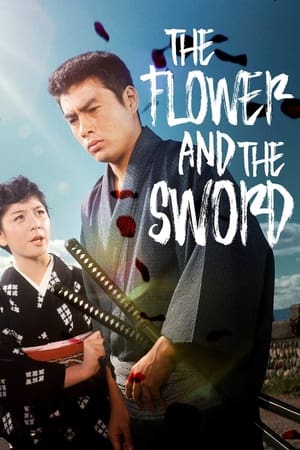 0.0
0.0The Flower and the Sword(ja)
A dangerous mobster threatens the life of a businessman's mother in this thriller. As Ryuji oversees the building of a bridge in Japan, a powerful gangster plans to stop the project. By any means necessary.
 7.6
7.6Dolls(ja)
Dolls takes puppeteering as its overriding motif, which relates thematically to the action provided by the live characters. Chief among those tales is the story of Matsumoto and Sawako, a young couple whose relationship is about to be broken apart by the former's parents, who have insisted their son take part in an arranged marriage to his boss' daughter.
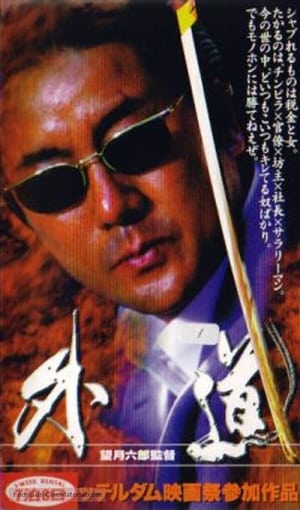 6.0
6.0The Outer Way(ja)
The cop Himuro is picked as scapegoat by his superiors because of their own involvement in sokaiya gangster practices.
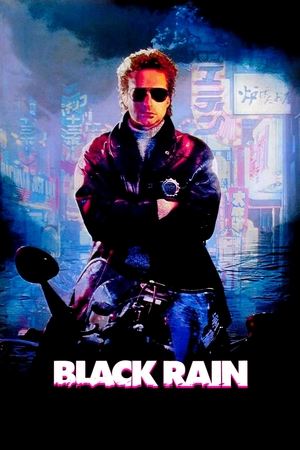 6.6
6.6Black Rain(en)
Two New York cops get involved in a gang war between members of the Yakuza, the Japanese Mafia. They arrest one of their killers and are ordered to escort him back to Japan. However, in Japan he manages to escape, and as they try to track him down, they get deeper and deeper into the Japanese Mafia scene and they have to learn that they can only win by playing the game—the Japanese way.
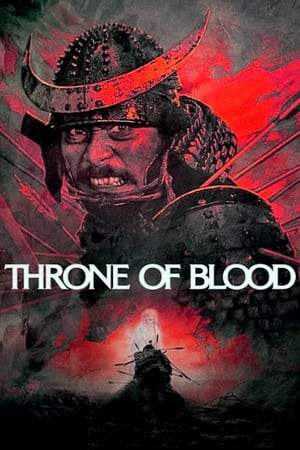 7.9
7.9Throne of Blood(ja)
Returning to their lord's castle, samurai warriors Washizu and Miki are waylaid by a spirit who predicts their futures. When the first part of the spirit's prophecy comes true, Washizu's scheming wife, Asaji, presses him to speed up the rest of the spirit's prophecy by murdering his lord and usurping his place. Director Akira Kurosawa's resetting of William Shakespeare's "Macbeth" in feudal Japan is one of his most acclaimed films.
 7.3
7.3Gray Wall Gear(ja)
The stage of this work is Saitama, a suburb of Tokyo in the early Heisei period. Immediately after the bubble burst gangster countermeasures law, there were gangsters who defended the last territory and young people who freely controlled the city. The youth conflict escalated day by day and became a force that surpassed the yakuza, and the runaways were sent to juvenile prisons one after another, where exclusive rules awaited.
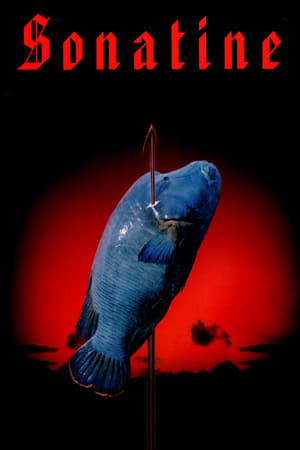 7.5
7.5Sonatine(ja)
Murakawa, an aging Tokyo yakuza tiring of gangster life, is sent by his boss to Okinawa along with a few of his henchmen to help end a gang war, supposedly as mediators between two warring clans. He finds that the dispute between the clans is insignificant and whilst wondering why he was sent to Okinawa at all, his group is attacked in an ambush. The survivors flee and make a decision to lay low at the beach while they await further instructions.
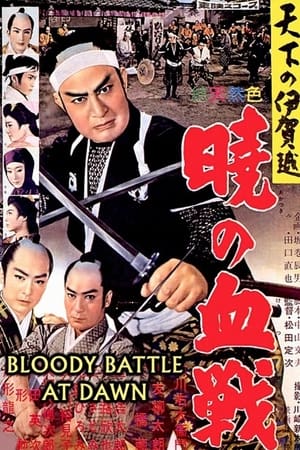 5.0
5.0Bloody Battle at Dawn(ja)
A story of revenge between two samurai families on the Igagoe Road. Araki Mataemon born in the province of Iga. He studied the art of the sword under the Yagyu family. He helped the younger brother of his wife Watanabe Kazuma take revenge on his enemy Kawai Matagoro. Ichikawa Utaemon plays Araki Matemon and his son Kinya Kataoji plays Kazuma.
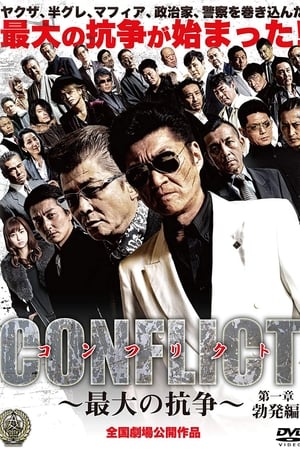 7.0
7.0CONFLICT: Outbreak(ja)
The Hyodo-gumi boss—part of Tendokai, Japan’s largest yakuza syndicate—has been brutally murdered. Kazuma Washio (Hitoshi Ozawa), the head of the Washio-gumi and Tendokai’s wakagashira (underboss), is convinced that Yoshinari Myojin (Sho Aikawa), a former Tendokai wakagashira-hosa now running Tokyo’s underworld of thugs and mafia, is behind the killing. Around the same time, Tendokai's 5th-generation chairman Katsushige (Hakuryu) orders Washio to secure a woman named Nagi Toyama (Akane Hotta). Washio sets out with his men, Okita (Yasukaze Motomiya) and Date (Hideo Nakano), but they’re ambushed by a group of heavily armed youths. Barely escaping, they manage to bring Nagi to their hideout—only to discover she’s a key player in a power struggle over the Tokyo Casino Project. And so begins the greatest conflict yet, entangling yakuza, mafia, street gangs, the police, and even the state itself—
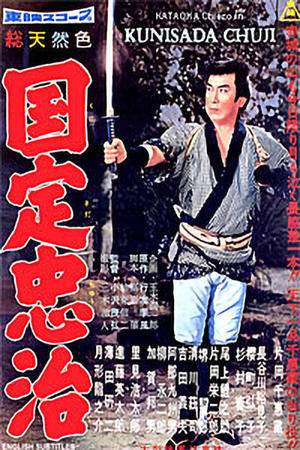 5.2
5.2Kunisada Chuji(ja)
Kunisada Chuji is a common folk hero who looks out for poor people in the country who are at the mercy of corrupt officials. Intent on fulfilling a dying wish from one of his henchmen, Asataro, to find a decent home for his young nephew, Chuji descends from his hide-out in the mountain, and heads to the city in spite of numerous dangers that await him there.
